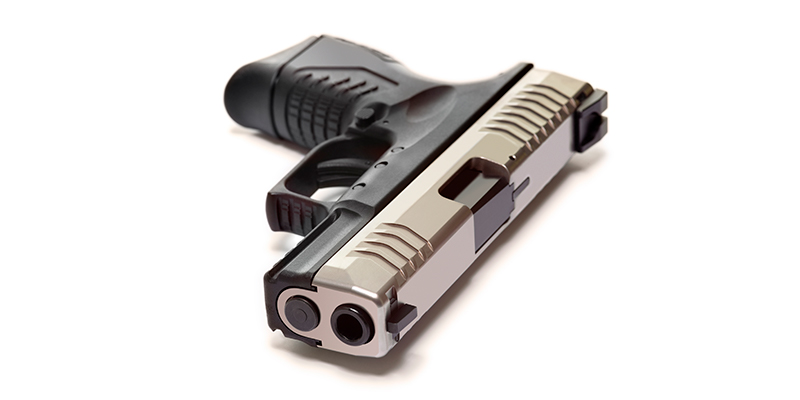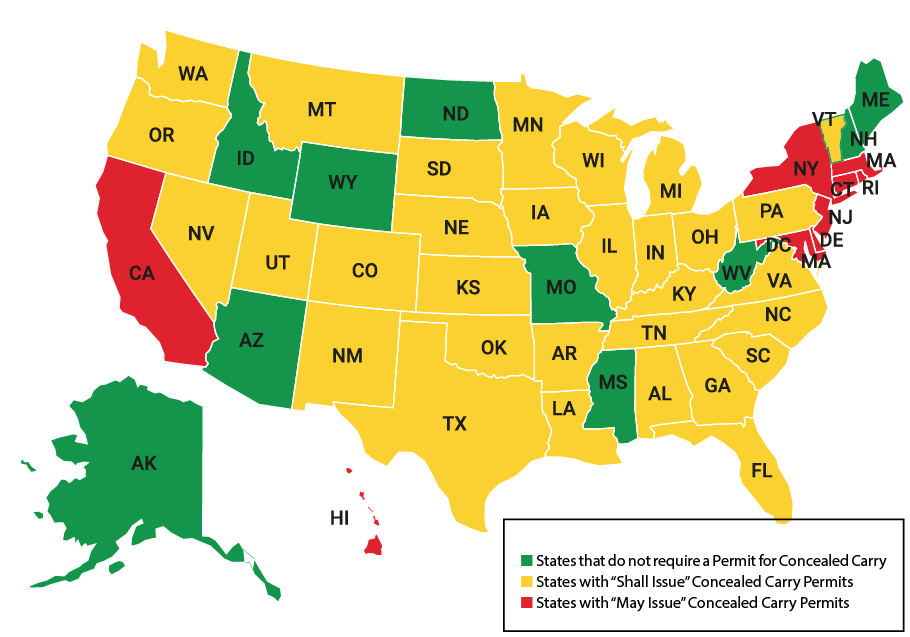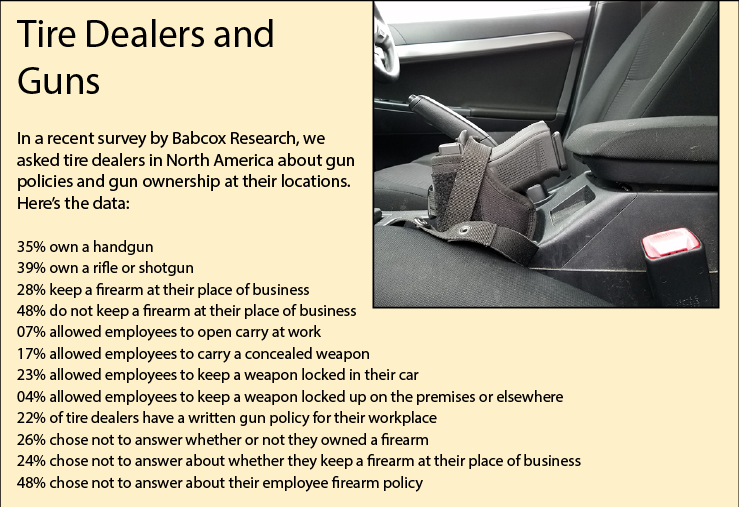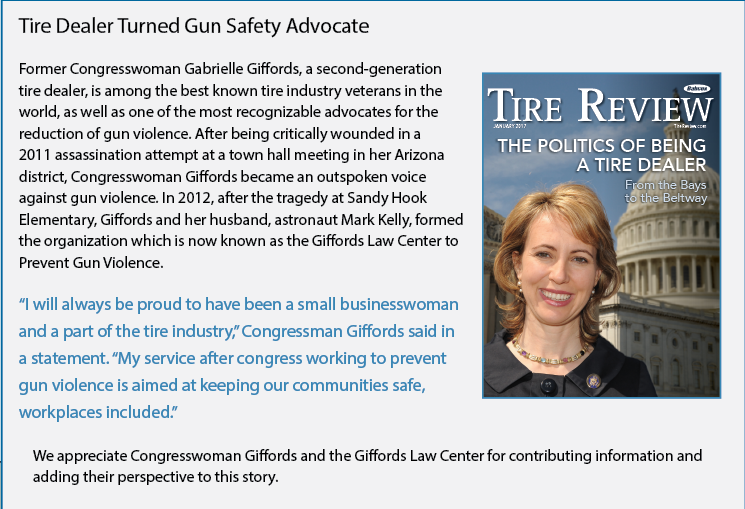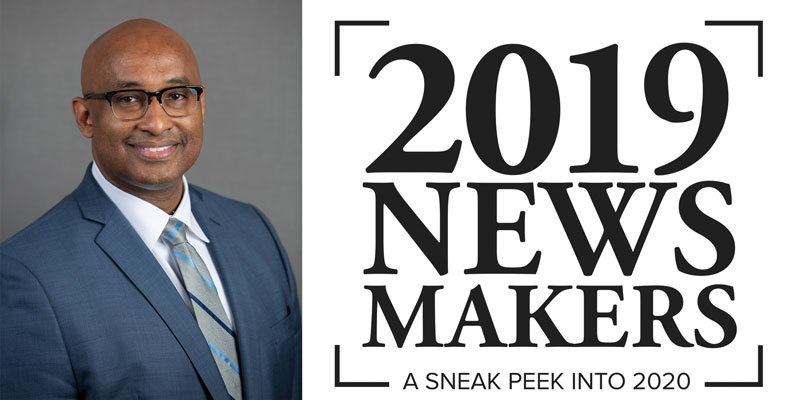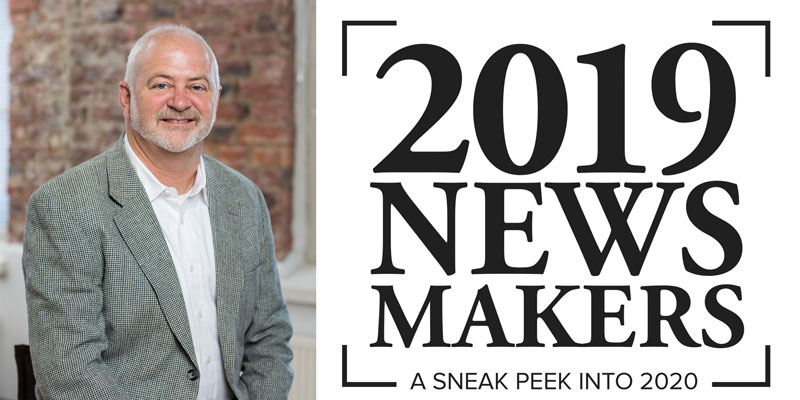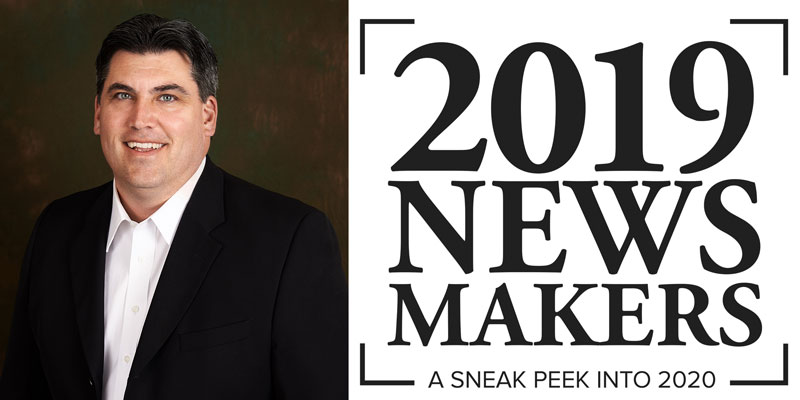On December 1, 2017, an angry customer confronted a staff member at Collier Car Care Center in Naples, Florida. Upset about charges on his bill, he pled his case, growing increasingly hostile as the conversation went on without satisfying his demands. When it became clear that he wouldn’t receive the answer he was looking for, he tried another strategy – violence. He punched an employee, before a second employee stepped in and “requested” that the customer leave the shop at once.
That request was given substantial weight by the gun in the employee’s hand.
The Reality of Guns
It is an unavoidable fact that guns are a part of the American landscape. Whether we love or fear them, the reality is that millions of Americans have a firearm in their home, their car or even concealed on their body. The growing prevalence of guns in America makes it increasingly likely that sooner or later, they will impact your business. Just as poor gun safety can lead to avoidable accidents, insufficient or ill-considered gun policy can leave you vulnerable to avoidable legal consequences.
According to GunPolicy.org, an organization hosted by the Sydney School of Public Health in Australia, the United States is home to at least 270 million privately owned firearms, or nearly one gun per person, the highest rate of private firearm ownership in the world. How you view those statistics, and how you interpret the incident in Naples, is going to be heavily influenced by political and ideological factors. Supporters of gun-owners’ rights and firearms-based defense strategies see a system that worked as was intended. For those in favor of gun control, the situation in Naples was a dangerous one that barely averted disaster — a disaster made possible by increasingly hands-off gun laws.
Tight Lips
The fact that politics and gun policy go hand-in-hand make it sometimes difficult to discuss gun-related issues without running into trouble with those who hold strong personal beliefs on the matter. In a perfect world, any discussion of guns would be about law, safety and best practices, but the reality is that any talk about guns is going to be shaped by the increasingly political nature of the topic. In gathering personal perspectives for this story, questions on the topic have provoked a sometimes-reserved reception by those we’ve spoken with. While there’s interest in the topic, it’s understandable that the combination of political and business considerations make some people a little bit hesitant to show their hand in public.
It’s hard to blame them. Tire dealers work so hard at cultivating their customers that publicly flaunting their views and policies on a controversial topic like guns runs the risk of offending any segment of the tire-buying public.
On top of the politics at play, there’s the complexity of gun laws to deal with. Even HR and legal experts Tire Review spoke to for this story were very careful to be precise about giving advice, or even hesitant to say much about their own internal policies. A major factor in that hesitancy is the fact that most laws that apply to guns in the workplace are passed and enforced at the state level, and can differ quite significantly from state to state. While the federal government regulates the legality of certain types firearms, it has little to say when it comes to who can and who cannot carry a concealed weapon into a place of business.
Of the tire dealers surveyed by Babcox Research in June 2017, a whopping 78% did not have a written gun policy in place for the workplace.
“In general, it is important for employers to be familiar with the firearms laws of the states in which they operate,” says Susan Bassford Wilson, labor and employment attorney with Constangy, Brooks, Smith & Prophete, LLP. “I also recommend that every employer create a broader policy on workplace safety, which should focus on employee safety and include a procedure on how to react to an armed intruder or other violence in the workplace. The policy should also provide specific guidance to employees about what is or is not permitted in the workplace and how to report any threats or concerns as well as establishing a disciplinary procedure for violations of the policy. I recommend you consult an employment attorney when an employer is drafting such a policy, as an attorney can help you avoid many common pitfalls and ensure the policy is legal and enforceable.”
The reality about state gun laws can be surprisingly different than assumptions. For example, Texas is often considered to have a reputation as being one of the most gun-friendly states in the Union, but it might surprise you to find that Vermont has a much more hands-off policy when it comes to allowing concealed carry. While there are some broad similarities in the kinds of laws passed by states (see “Terms to Know” on page 26 for more information), the language and application of those laws is not always the same. If you make assumptions about what is or isn’t legal, it could easily lead to a legal headache that could be avoided.
History
Americans have a long history with guns, but many of the current contentious issues surrounding the role of guns in the workplace are actually fairly new. Thirty years ago, the incident in Naples would likely have gone differently. It’s certainly possible that a manager of the shop might have had the iconic “shotgun under the counter,” but it’s unlikely that a private citizen would have possessed a legal concealed weapon. In most states, legally carrying a concealed weapon into a workplace is actually a relatively new development.
In the early 1980s, only a few states had easily acquired concealed carry permits. By the 1990s, state laws were already trending toward more permissive gun laws. First, states began to pass “shall issue” gun laws that permitted applicants to be automatically approved for a permit, so long as they met basic requirements. By the time Illinois passed a concealed carry law in 2013, it became the last state in the nation to do so. Now, only a few states require a specific reason to issue a concealed carry permit, and a growing number require no permit at all, provided that the owner is otherwise legally permitted to own a handgun.
“Three states and the District of Columbia prohibit people from openly carrying any firearms in public; two states prohibit openly carrying handguns, but not long guns; an additional three states prohibit openly carrying long guns, but not handguns,” says Laura Cutilletta, legal director of the Giffords Law Center to Prevent Gun Violence. “The remaining 42 states generally allow firearms to be carried openly, though some require a permit or license to do so.”
The result of these trends is a very large increase in the number of legal firearms in public over the past three decades. Whether or not this is a good thing is a matter of personal opinion. The only thing that is objectively clear is that more guns means a greater chance thave an issue with a firearm, and because of this, we invite you to become more aware of the policies in your area and the recommendations to establish and communicate a policy within your organization. Being blindsided by an unexpected problem like gun policies is the last thing you need.
Help or Hazard?
There is no widely held consensus on whether armed civilians make a workplace more or less safe. It’s true that sometimes a “good guy with a gun” takes down a “bad guy with a gun,” but it’s also true that legally acquired firearms are occasionally misused by deranged or careless people. Very strong and passionate cases are made every day for more or less guns in the hands of law-abiding citizens. Not surprisingly, those arguments tend to align closely with political perspectives on guns.
As you’d expect, pro-gun sources tend to see guns as a net positive. Gun control advocates see it as creating more harm than good. The confusion is made worse by limited (and sometimes suspect) statistics. That’s why the most important factor in determining how to deal with guns in the workplace is the judgment of the business owners themselves informed by professional legal advice.
We recently asked our Top Shop community about the topic of guns in the workplace and how they handle firearms in their locations across the United States (see more at www.tirereview.com/top-shop-discussion-gun-policy). We heard stories of shops that allow employees to keep their weapons at work, shops that have a communal gun safe for work hours, shops that require employees to leave their firearms at home or locked in the trunk or glove box.
Guns are among the items that Monroe Tire & Service inventories if left in the car, says owner Chris Monroe. “[Customers are] required to announce [if they have a gun in the car],” he says. “They come in and tell the advisor, and then we text them or say ‘hey, you’ve got a gun in the car, and you’ve got $300 and three pills that we don’t know what those are. We’re just taking inventory.’”
Craig Wortham of Alyeska Tire says that their location is a major factor in how they approach gun policy. “We’ve got so many guns in Alaska, we ask our customers to please leave their weapons in their vehicle.”
It’s no surprise that a tire dealer in Alaska is going to have a far different relationship with firearms than one in a densely populated city. Location is just one element in the personal preference and judgment that is a crucial element in creating a sensible company gun policy.
Guns and the Law
The most prominent gun-related workplace incidents involve a gun-armed criminal robbing or rampaging through a business, but it’s certainly not the only, nor the most likely, scenario. While it’s great to have a well-rehearsed plan for what to do in an active shooter or robbery scenario, it’s the more mundane issues of workplace gun policy that are the most likely to be encountered.
For instance, a number of states have laws that protect a gun-owners right to keep a firearm locked in his or her car, even if the employer has banned weapons on the property. A business owner who fires an employee for having a weapon locked securely in his trunk could face legal ramifications for doing so. Preemptively applying a policy to that situation can potentially save time and a lot of money.
“An employer can typically prohibit guns in the workplace, but nearly half the states permit employees to keep firearms in their locked vehicles on private property even if the employer prohibits the carrying of guns inside the workplace,” says Bassford Wilson. “Thus, in those states, I would not recommend a policy that totally prohibits firearms on the company’s property. Further, there may be local or state ordinances regarding how to post notice that firearms are prohibited as well as state-specific conceal-and-carry requirements. Employers may also need to be aware of state-specific laws regarding vehicle searches before searching an employee’s car for firearms.”
In some states, including Wisconsin and Texas, laws have been proposed that would hold business owners liable for any injuries sustained in a shooting if the business banned otherwise-legal weapons from the premises. There might also be legal ramifications for a business owner who knowingly allows an employee to have a gun at work, especially if that employee is not legally allowed to possess the weapon or is known to be a danger to others. Every state handles these liability issues differently, which only underscores the point of having a legal or HR professional on the team when you’re crafting new policies.
State and federal gun laws and policies will likely continue to change and grow more complex. With high political volatility and strong feelings on both sides, change is likely to be the only thing that will stay the same. Like any kind of regulation or law, it’s important to stay ahead of the curve that will keep yourself in the best position possible to avoid running into problems with the law. Knowing the law, and the risks and benefits of guns in the workplace will go a long way toward making sure that your business will stay safe, legal and ready for any gun-related issues that might arise.
A smart, proactive gun policy can help avoid problems and save your time and energy for what you do best— sell tires.

